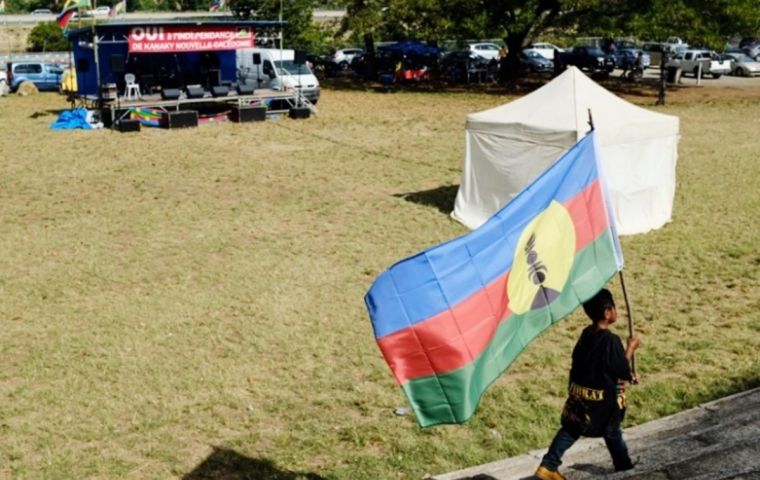MercoPress. South Atlantic News Agency
French Overseas Territory New Caledonia votes independence referendum on Sunday
 Sunday’s vote is key to determining the future of the archipelago and its 270,000 inhabitants, including both native Kanaks, and descendants of European colonizers
Sunday’s vote is key to determining the future of the archipelago and its 270,000 inhabitants, including both native Kanaks, and descendants of European colonizers Voters in New Caledonia, a French archipelago in the South Pacific, will choose whether they want independence from France in a referendum that marks a milestone in a three-decade decolonization effort.
Sunday’s Oct 4 vote is key to determining the future of the archipelago east of Australia and its 270,000 inhabitants, including both native Kanaks, who once suffered from strict segregation policies, and descendants of European colonizers.
The vote was long-planned and is focused on local issues, but comes at a time when the legacy of colonialism is under new scrutiny globally after protests in recent months against racial injustice inspired by the Black Lives Matter movement in the US.
In Sunday's referendum, more than 180,000 registered voters will be asked to answer the question “Do you want New Caledonia to gain full sovereignty and become independent?”
No opinion polls have been released, but two years ago, 56.4% of voters who participated in a similar referendum chose to keep ties with Paris - 16,000km and nine times zones away - instead of backing independence.
Both referendums are the final steps of a long process that started 30 years ago after years of violence that pitched pro-independence Kanak activists against those willing to remain in France.
A peace deal between rival factions was achieved in 1988. A decade later, the Noumea Agreement granted New Caledonia political power and broad autonomy and planned the organization of up to three successive referendums.
If voters choose independence on Sunday, an unspecified transition period will open so that the archipelago can get ready for its future status.
Otherwise, New Caledonia will remain a French territory - and therefore part of the European Union - with its residents keeping French citizenship.
Independence activists campaigning for the “yes” vote want all sovereign powers, including justice, police, the military, currency and foreign relations, to be transferred from France to New Caledonia.
Supporters of the political alliance “L’Avenir en confiance” (“Future in confidence”) argue in their campaign program that “New-Caledonia in France is proud to have its own identity, rich from its diversity. We are part of the French nation.”
Gil Brial, a 46-year-old member of L’Avenir en Confiance and coordinator of the “no” campaign, said “we need to show now that with our project within the French Republic, our large degree of autonomy, we can develop New Caledonia.”
It became an overseas territory after World War II, with French citizenship granted to all Kanaks in 1957. Under French colonial rule, the Kanaks faced strict segregation policies and widespread discrimination.
While visiting the archipelago in 2018, French President Emmanuel Macron acknowledged the “pain of colonization” and handed the Caledonian government a document that stated the archipelago became a French possession in 1853 - a gesture intended to symbolize the final chapter in the period of colonization.
Latest estimations show the Kanaks now represent 40% of the population, people of European descent about 27% and others mostly originate from Asian countries and Pacific islands.




Top Comments
Disclaimer & comment rulesCommenting for this story is now closed.
If you have a Facebook account, become a fan and comment on our Facebook Page!